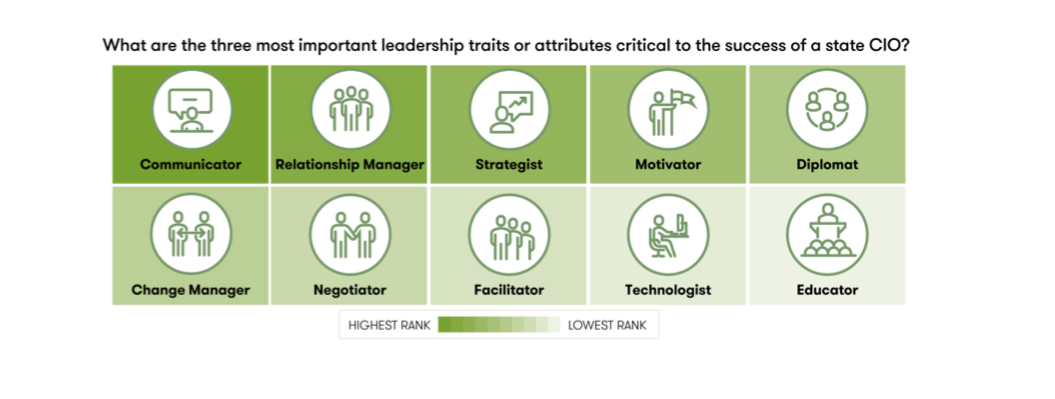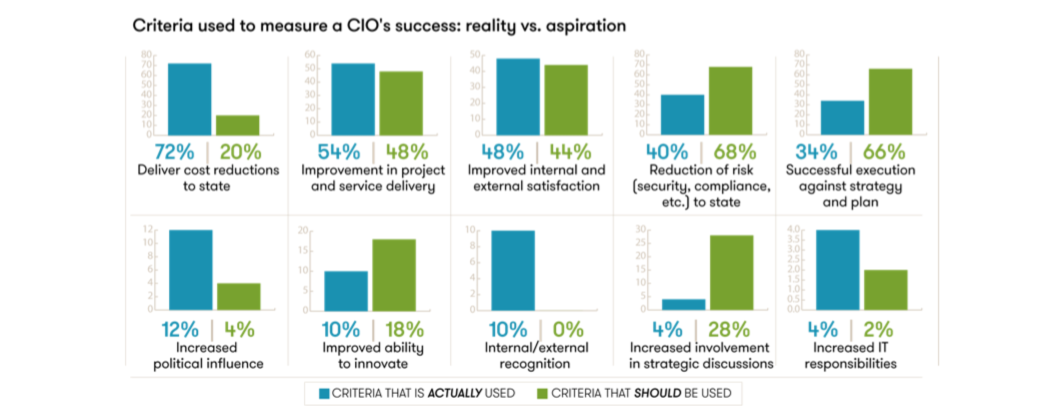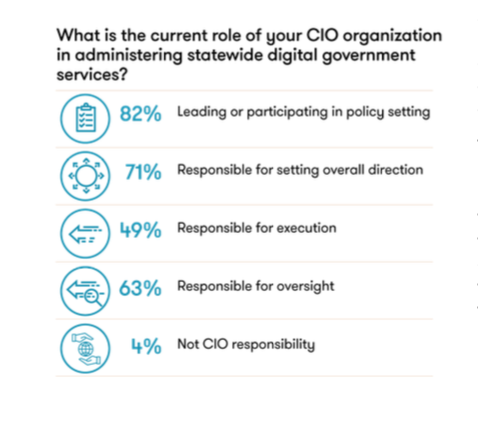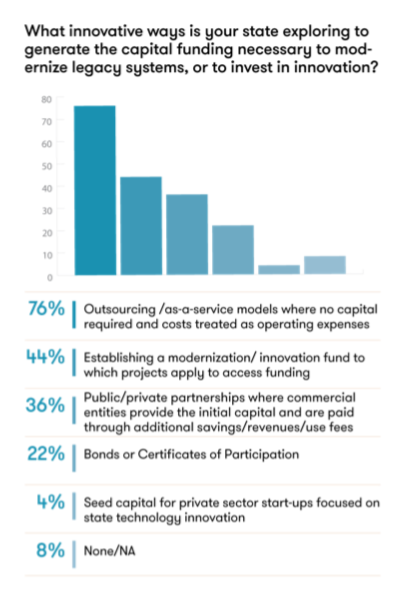Connecting state and local government leaders
Major takeaways from NASCIO’s annual survey of state chief information officers.
SAN DIEGO — In the state government IT landscape, it’s unwise to assume that all states are dealing with with the same set of challenges and pursuing the same strategies.
“If you’ve seen one state, you’ve seen one state,” Doug Robinson, the executive director of the National Association of State Chief Information Officers reminded those assembled for the organization’s annual conference in San Diego on Tuesday. It’s not the first time he’s said that and likely isn’t the last.
While NASCIO’s annual State CIO survey, now in its ninth year, maintains the anonymity of its respondents, it does paint a good picture of the various complexities and challenges that state government IT leaders face.
Robinson said that this year’s survey has even more significance because of upcoming gubernatorial transitions. New governors assuming office in the new year will in all likelihood bring in new state CIOs, so it’s important not to lose the insights from those exiting government service.
“We know there will be changes so we wanted to capture advice from the trenches,” Robinson told a packed ballroom that assembled to hear the major takeaways from this year’s survey, which is the result of an ongoing collaboration between Grant Thornton LLP and the Computing Technology Industry Association, better known as CompTIA.
Robinson said that all 50 states participated in this year’s survey, which featured 46 multiple choice and open-ended questions and included 24 individual state CIO interviews conducted at NASCIO’s mid-year conference in Baltimore. Those who responded to this year’s CIO survey represent more than 150 years of collective service as a state’s top technology official.
Among the major takeaways that rise to the top in this year’s survey is the necessity that the state CIO be an effective communicator.
According to the survey’s executive summary: “Gone are the days where state CIOs are primarily focused on IT infrastructure. When asked, CIOs consistently ranked communication, relationship-building and strategic thinking as the most critical leadership traits for a successful CIO. In contrast, technology expertise came in at number nine.”

During a panel discussion led by Robinson, Minnesota state CIO Johanna Clyborne, underscored a tough reality that she and her peers in other states face.
“We have a lot of bosses that we report to and we can’t make everyone happy,” she said. That includes not just the governor, but also the legislative leaders who are often apprehensive to fund needed IT resources, infrastructure and improvements.
That’s where CIOs have to not just play the role of chief communicator, but also relationship manager, strategist, negotiator and diplomat. While that requires a delicate balance, state CIOs, Clyborne said, need to “cut the bull,” be “honest and transparent about what they need” and figure out ways to navigate the obstacles that IT leaders always face, including not having enough funding and resources.

During the discussion, Graeme Finley, a principal with Grant Thornton Public Sector, pointed out an interesting survey finding when it comes to the criteria used to measure a CIO’s success. Looking specifically at CIOs being able to deliver cost reductions to the state, 72 percent of CIOs said that’s criteria actually used to measure their success, but only 20 percent said that should be used.
California state CIO Amy Tong said that in some ways, IT transformation leading to dramatic cost savings is a bit of a “myth.” Instead, IT transformations should be more about delivering excellent government services for residents, businesses and anyone else who needs to interact with agencies and departments.
Among the specific areas the survey examined: CIO business models; legacy modernization funding and procurement; cybersecurity; portfolio management; data management and analytics; digital government; agile and incremental software delivery; cloud; and emerging technology.
While there wasn’t enough time to go through each section of the report during the panel discussion, Clyborne, Finley, Robinson and Tong took time to discuss a few areas, including current attitudes when it comes to digital government transformation.

One of the survey questions asked: “What is the current role of your CIO organization in administering statewide digital government services?” Eighty-two percent said they were leading or participating in setting policy; seventy-one percent said they were responsible for setting overall direction; forty-nine percent said they were responsible for execution; sixty-three percent said they were responsible for oversight; only four percent said that it wasn’t a CIO responsibility in their state.
In California, where digital government transformation is part of the state’s 2020 strategic plan, a driving force is prioritizing what users need. “It’s really about anticipating human behavior,” Tong said. “A lot of user design research needs to be done upfront.”
Clyborne echoed that sentiment: For “the end user … the average citizen, what do they need to see? What do they need to access?”
The survey features this quote: “We should move from how government views itself to how citizens view government, with a customer service focus. Start viewing yourself as citizens and businesses see you.”
Another area of the survey that was discussed was legacy modernization funding and procurement. One question that was asked: “What innovative ways is your state exploring to generate the capital funding necessary to modernize legacy systems or to invest in innovation?

Seventy-six percent said “outsourcing / as-a-service models where no capital required and costs treated as operating expenses.” Forty-four percent said they were “establishing a modernization / innovation fun to which projects apply to access funding.” Thirty-six percent said “public / private partnerships where commercial entities provide initial capital and area paid through additional savings / revenues / use fees.”
In Minnesota, Clyborne said, “there’s been a discussion about how do we fund continuous modernization,” but like in many states, that’s a work in progress.
Download the complete 2018 State CIO survey here.
Michael Grass is Executive Editor of Government Executive’s Route Fifty and is based in Seattle.

NEXT STORY: Why government must demystify AI




